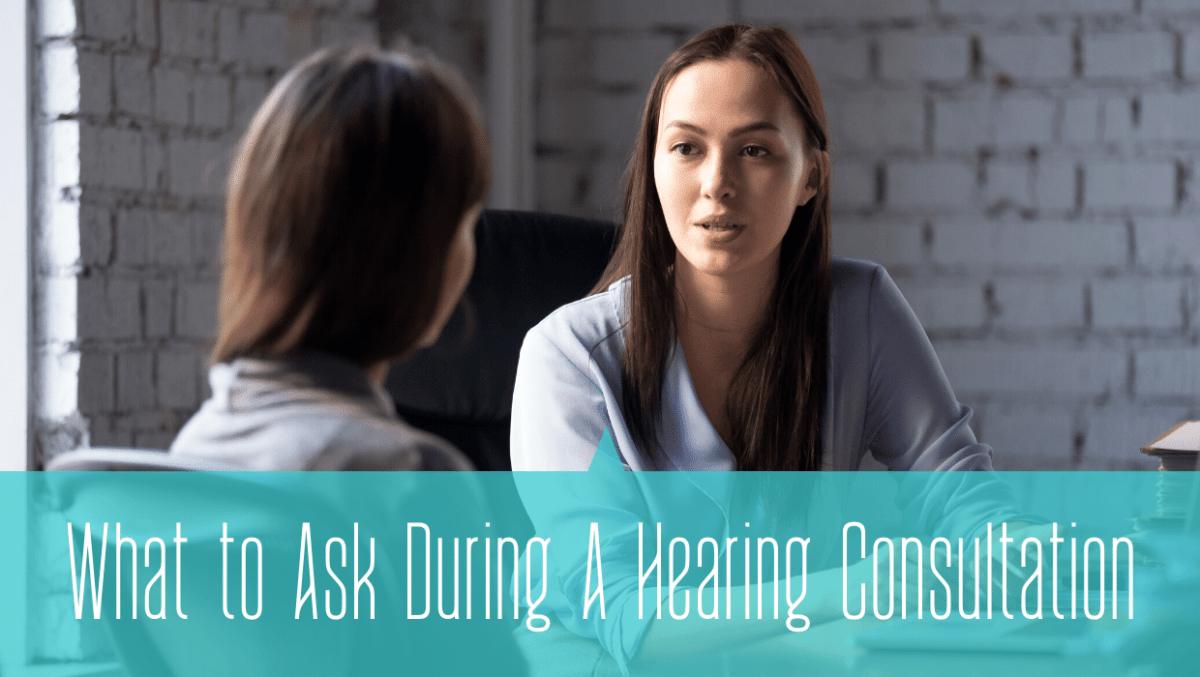- Questions to Ask During Your Hearing Health Appointment - May 16, 2025
- Exploring Alternative Therapies for Hearing Loss - May 6, 2025
- Why Rechargeable Hearing Aids Are Changing the Game for Users - April 27, 2025
If you’ve booked yourself a hearing consultation, good for you! Talking over your hearing and getting it tested is the first step towards healthier hearing. With this knowledge, you can make a more informed choice about what treatment options would be best for you.
Nonetheless, before you make such a significant investment, you’ll want to know everything you can about those options. You may expect your audiologist or hearing specialist to ask you several questions when you go to your hearing test and appointment. But you should be similarly prepared with your own questions.
During this type of appointment, it’s easy to get flustered, particularly with such an important decision before you. This is why it may be helpful to bring the following list of questions with you. By preparing yourself with these questions, you’ll leave the appointment fully prepared for your journey toward better hearing.
What type of hearing loss do I have?
Hearing loss occurs in three forms:
- Sensorineural (in the inner ear or hearing nerve)
- Conductive (in the outer or middle ear)
- Mixed (a mixture of the two).
Understanding the form of hearing loss you have is crucial to better understanding what to expect. You’ll also want to know whether the hearing loss happens similarly or unequally between the two ears. During discussions and listening settings, this detail can help you use your “good ear.”
What type of hearing aids are available to me?
A growing range of options is available in the field of hearing aids. Without the guidance of a professional, you may find that wading through the many choices is difficult. Lucky for you, a qualified hearing professional such will be there to provide you with a range of options that suit your needs.
You’ll still want to ask about the choices out there, though, making sure you get a good sense of the balance of features and price that will suit your needs and budget. For example, some features like Bluetooth connectivity can be useful to you, while others may be an unnecessary extra expense.
Also, make sure to note if you have any issues with mobility or arthritis to your hearing specialist. If you have a hard time with small devices, it can be challenging to mount and remove some of the smallest hearing aids.
Which are my options for financial assistance?
Although some people can pay directly for their hearing aids, most people will rely on insurance. Some policies may cover hearing aids, or at least offer a discount, while others do not provide such assistance.
In New York state, the right insurance provides coverage for hearing loss “if the patient is considered to have “mild” or greater hearing loss,” according to Hearing Review. Contact us to see if your insurance plan provides for these benefits.
How do I take care of my hearing aids?
Given the relatively low maintenance of the new hearing aid devices, there are things you can do to keep them in full working order. Hearing aids require simple cleaning and debris removal, and you’ll want to know about the best way to complete these tasks. You’ll probably want to know about how long your hearing aids are expected to last. Of course, this is heavily dependent on how you handle them and how often you use them.
How can I get used to my hearing aids faster?
Being used to hearing sounds that you may not have heard for years might take some time. Your hearing professional will program them for you according to your exact hearing prescription, but it won’t sound amazing from the very first day.
Luckily, they will be able to adjust your device at first to be lower in intensity, then slowly raise the volume as your tolerance allows. Some hearing aids can be programmed to expand gradually over many weeks before you are comfortable with them.
Be aware that it’s natural for sounds to be not only too loud but also too high-pitched when you first start using your hearing aids. But consistently eating them is the only way your brain can readapt to the sounds you have lost.

